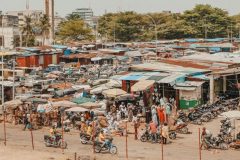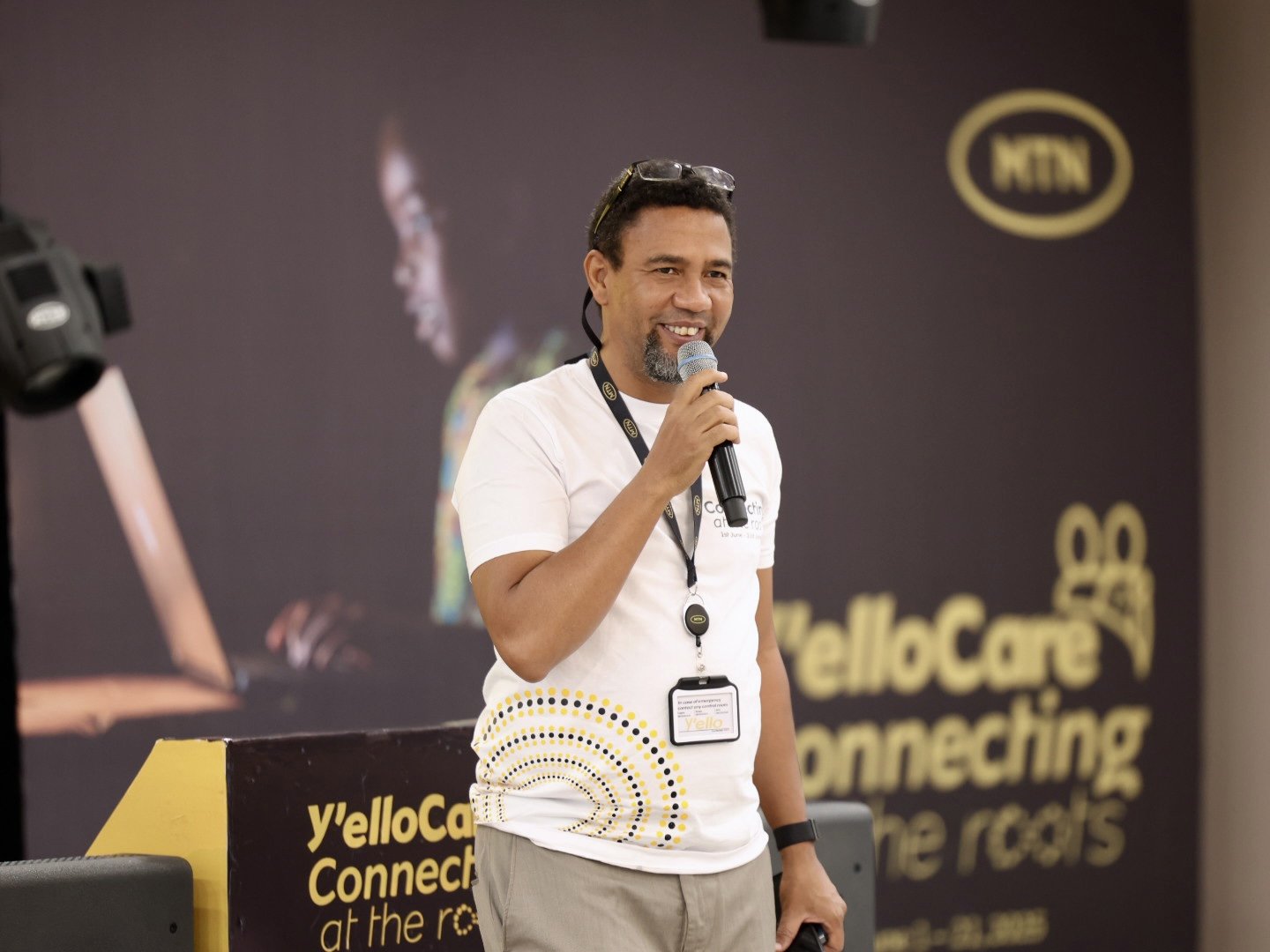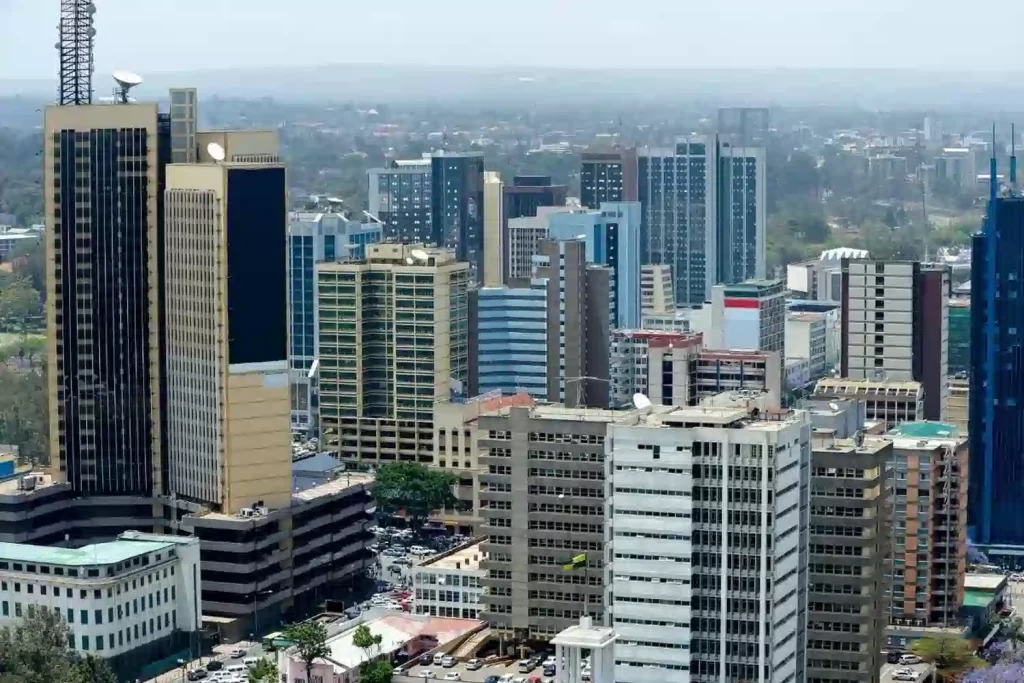This piece was contributed to TechCabal by Oswald Osaretin Guobadia. Mr. Guobadia is currently the Senior Special Assistant to His Excellency, President Muhammadu Buhari, on Digital Transformation. He is the lead on the Nigeria Startup Bill (NSB) -a project that is strategic to the growth of Nigeria’s tech ecosystem and digital economy.
Africa, the world’s second-largest continent by population, with around 1.40 billion people, or 16.72% of the world’s population, has a promising future. Its predominantly youthful population is changing the course of history in many facets.
Internationally, young Africans are cutting their teeth and putting smiles on people’s faces back home with their dexterity in the booming entertainment industry and the recognition that comes with it. The same can be said of sports and fashion; Africans are taking the lead.
Africa is home to many natural resources like oil, gold, diamonds, and ores, such that many technology giants like Apple Inc. rely on Congo’s supply of tantalum, tin, tungsten, and gold to manufacture smartphones, batteries, and laptops.
Even though this implies that Africa has enough resources to supply the world, a new order is fast taking the place of natural resources – DIGITAL TECHNOLOGY.
The digital tech ecosystem in Africa is on the move. Africa’s ecosystem is comparable to a moving train that cannot be stopped because, despite the odds that Africa has been faced with, youths, comprising 70% of the continent’s population, are using innovation to change several sectors, including banking and finance, health, education, agriculture, and hospitality.
This new order is changing how we approach life. Globally, digital technology is contributing to revenue growth and driving developing and developed economies. We hear and believe that data is the new oil.
According to Techspace Africa, Disrupt Africa, and Rwanda’s The New Times, African startups passed the US$2 billion mark in investment for the first time, up from US$701,460,565 achieved the previous year. In 2021, startup funding grew by 42.1 percent despite the widespread effects of the COVID-19 pandemic on global economies. Funding growth indicates an upward trajectory, just as the industry is projected to record significant growth, estimated at $712 billion by the year 2050.
Even with a growing number of young Africans openly expressing interest in building startups, some factors pose threats to existing and emerging startups in Africa. But as Nigerians say, even in our most challenging times, “WE MOVE.”
The Nigerian Angle
Nigeria has one of the continent’s fastest-growing startup ecosystems, according to StartupBlink’s ranking of Africa’s top tech ecosystems in its Global Startup Ecosystem Index, 2021.
It has become common knowledge that Nigerian youths dominate the digital tech space, positioning Nigeria as one of the countries tackling problems in diverse sectors by utilizing innovative thinking and leveraging the power of technology.
With the success stories of Andela, Autochek, Kuda Bank, ULesson, Bloc, and several others documented by local and foreign news publications, Nigeria-based startups face challenges such as power cuts and limited access to funding, expensive data plans, and regulatory issues. But each time our resolve is tested, we always find a way to surmount the challenge; that is the hallmark of being a Nigerian.
Roadmap to Glory
No doubt, Nigeria has the potential to be a world leader in the digital tech ecosystem. But to achieve this, we must lay a solid foundation, and this begins by having not just a peripheral but more profound knowledge of what digitization is, the benefits thereof, and the infrastructure needed to achieve digital transformation.
Digitalization uses technology to enhance our daily activities and simplify complicated operational processes. The transformation in the Nigerian banking system is an example of the importance of digitalization and the advantages that come with it. Today, you can perform banking transactions at home or on the street.
On the other hand, infrastructure is the technology hardware, network resources, and services required for us to achieve the objective of a digital society. They include network equipment like routers, computing hardware such as servers and software, facilities like data centers, computing and application platforms, and more.
As stated above, a digital economy is crucial, but having the infrastructure to power this is much more important. The application of Artificial Intelligence (AI), accelerated wireless connectivity, and the spread of relatively inexpensive computing systems mean that the tech ecosystem can offer a faster and more efficient world for businesses and other activities that will improve the Nigerian business environment as many companies have adopted the use of digital technology.
At this point, it is crucial to note that while startups see their innovations as disruptions, policymakers in the system may see them as displacements. This implies that startups’ innovations are here to enhance productivity, provide other solutions, and make life generally easier, which adds and should not subtract. But policymakers may perceive the strides of these startups as displacing already existing structures and functioning paradigms. The key to ensuring that these paradigm shifts do not lead to a dysfunctional ecosystem or adversely impact the economy is that practitioners and policymakers within the ecosystem engage and collaborate to develop dynamic policies and regulations that will increase innovation while managing the potential displacement.
The above is why founders and other tech enthusiasts should actively participate in governance. This is because the Nigerian digital tech space must get accurate representation at the highest level of power and make room for the passage of laws that will cause it to continually thrive. An example is the Nigeria Startup Bill (NSB), recently passed by the National Assembly. The Bill will ensure that Nigeria’s laws and regulations are clear, well-planned, and beneficial to the tech industry. It will also help create an enabling environment for growth and attract and protect investment in the tech space. Key to its success would be the quality of implementation and complete sub-national adoption.
A digital economy is driven by a technologically exposed society where every man, woman, and child is tech-savvy. We must review our school syllabuses at the elementary, secondary, and tertiary levels and even the mandatory one-year youth service corps (NYSC). We need to ensure that at the elementary level, which is the foundation of all learning, computer science is integrated because if we succeed at creating computer whizzes at the foundation level, then we will succeed in birthing a generation of people that will transform our entire existence and redefine life through technology.
Therefore, the preceding guarantees that every Nigerian, even those in our villages, will adopt technology and technology-driven teachings that will make Nigeria an advanced nation soon.
Every step we take to fix the deficiencies in the ecosystem pushes us to a world of possibilities, where the following big global tech solutions will come from a Nigerian village in Edo, Ekiti, Imo, Benue, or Katsina State. We will not just have smart cities but rather smart villages where integrated technology will create innovative schools that will foster quality teaching and learning.
Local markets will be open to the international market because the world is now a global village due to technology integration into our villages. This will improve the economy of our people and eradicate poverty, which has been a longstanding issue in our society. The level of societal digitization will become the new global poverty line. The African digital tech ecosystem will spark the continent’s transformation and build giants among our nations such that our villages and critical sectors will be powered by technology. From Karu village in Nigeria to Akrofu village in Ghana; Doumga, Senegal; Kayonza, Rwanda; Massai, Kenya; Megdaz, Morocco; and Shakaland Zulu village, South Africa; the world is not ready for what Africa is about to unleash on the global tech ecosystem.
Africa is the future the world is waiting for. You have a part to play.
Guobadia is a Non-Executive Director on the Board of Edo Innovates - the engine hub to drive technology and innovation in Edo State by providing strategic policy guidance, leverage on skills development, investment promotion and tech advancement in the state. He is the founder of DBH Africa - a building infrastructure and technology solutions provider in West Africa. He actively supports startups in business strategy, operations optimisation, and technology.





















